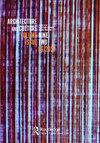设计工作室中的面向对象本体:Simon Weir和Graham Harman在建筑和哲学上的对话
IF 1.8
0 ARCHITECTURE
引用次数: 0
摘要
摘要Simon Weir和Graham Harman的对话发生在2021年,他们在建筑设计工作室讨论了不同的本体论及其后果。面向对象本体对三种不同类型的对象访问进行了分类。两种是被称为破坏和过度制造的知识形式,相当于直接获取的虚假声明。另一种是典故,这是我们在美学中最常见的一种间接的访问形式。这三种访问提供了对建筑对象的三种不同的讨论和分析模式,以及设计工作室中话语的两个潜在问题:将知识审美化和试图从美学中获取知识。本文章由计算机程序翻译,如有差异,请以英文原文为准。
Object-Oriented Ontology in the Design Studio: A Dialogue Between Simon Weir and Graham Harman Across Architecture and Philosophy
Abstract This dialogue between Simon Weir and Graham Harman took place in 2021 discussing different ontologies and their consequences in the architectural design studio. Object-oriented ontology classifies three distinct kinds of access to objects. Two are forms of knowledge called undermining and overmining, which amount to false claims of direct access. The other is allusion, an indirect form of access we find most often in esthetics. These three kinds of access offer three distinct modes of discussion and analysis of architectural objects, and two potential problems for discourse in the design studio: aestheticizing knowledge and trying to make knowledge from esthetics.
求助全文
通过发布文献求助,成功后即可免费获取论文全文。
去求助
来源期刊

Architecture and Culture
ARCHITECTURE-
CiteScore
0.80
自引率
0.00%
发文量
25
期刊介绍:
Architecture and Culture, the international award winning, peer-reviewed journal of the Architectural Humanities Research Association, investigates the relationship between architecture and the culture that shapes and is shaped by it. Whether culture is understood extensively, as shared experience of everyday life, or in terms of the rules and habits of different disciplinary practices, Architecture and Culture asks how architecture participates in and engages with it – and how both culture and architecture might be reciprocally transformed. Architecture and Culture publishes exploratory research that is purposively imaginative, rigorously speculative, visually and verbally stimulating. From architects, artists and urban designers, film-makers, animators and poets, from historians of culture and architecture, from geographers, anthropologists and other social scientists, from thinkers and writers of all kinds, established and new, it solicits essays, critical reviews, interviews, fictional narratives in both images and words, art and building projects, and design hypotheses. Architecture and Culture aims to promote a conversation between all those who are curious about what architecture might be and what it can do.
 求助内容:
求助内容: 应助结果提醒方式:
应助结果提醒方式:


